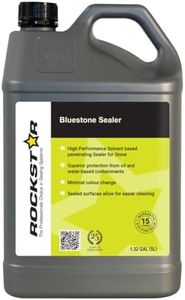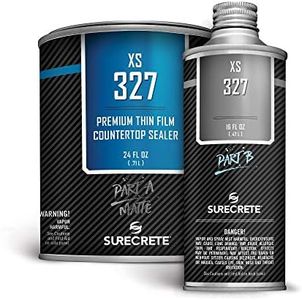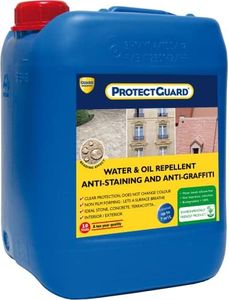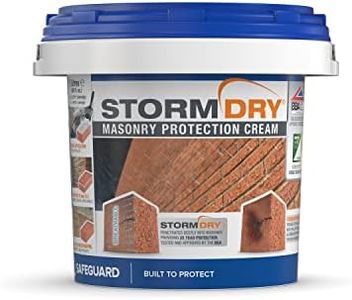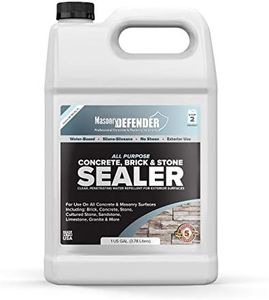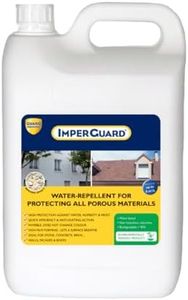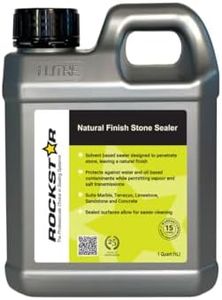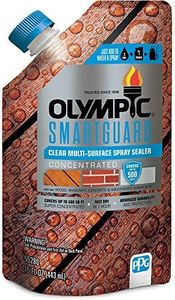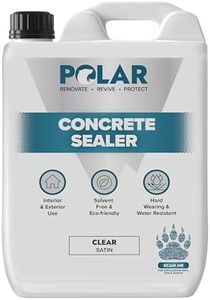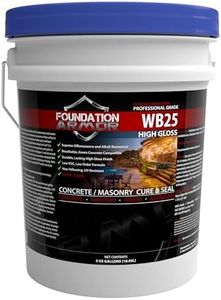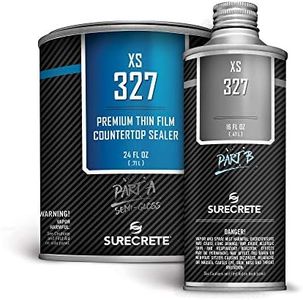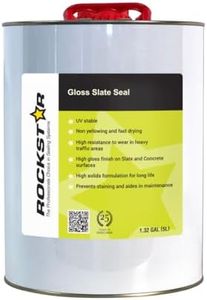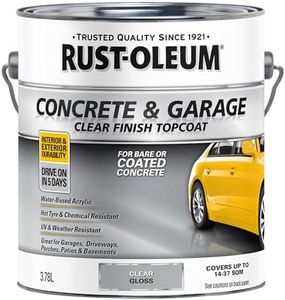We Use CookiesWe use cookies to enhance the security, performance,
functionality and for analytical and promotional activities. By continuing to browse this site you
are agreeing to our privacy policy
10 Best Concrete Sealer
From leading brands and best sellers available on the web.By clicking on a link to a third party's website, log data is shared with that third party.
Buying Guide for the Best Concrete Sealer
Choosing the right concrete sealer can make a big difference in protecting and preserving your surfaces. Whether using it on a driveway, patio, basement, or industrial floor, the goal is to protect the concrete against water, stains, weather, and wear. Understanding key features will help you match a sealer to your specific needs and ensure lasting results.Type of SealerConcrete sealers come in several types, including penetrating sealers, acrylic sealers, epoxy sealers, and polyurethane sealers. Penetrating sealers soak into the concrete and are great for outdoor surfaces exposed to weather, while acrylics sit on top and can enhance appearance. Epoxies and polyurethanes are thicker and often used for indoor surfaces or places needing extra protection. Think about your location and usage: outdoor areas often do best with penetrating types, while indoor or decorative spaces might benefit from acrylics, epoxies, or polyurethanes.
Finish (Gloss Level)The finish refers to how shiny or matte your concrete will look after sealing. Low-gloss and matte finishes highlight a natural look while reducing slipperiness, often preferred for driveways and patios. High-gloss finishes add shine and can make colors pop, commonly used for decorative floors or areas where looks matter. Your choice should consider both the visual preference and practical concerns like slip resistance.
Durability & LifespanDurability measures how long the sealer will protect the surface before needing reapplication. Some sealers last only a year or two, while others protect for five years or more. High-traffic or outdoor areas usually require more durable sealers. If you want less frequent maintenance, opt for longer-lasting, more resilient products. If you don't mind occasional touch-ups, less durable options might work.
Application MethodSome sealers are rolled or brushed on, while others are sprayed. Thin, water-based products are usually easy to apply with a sprayer or roller, good for basic DIY projects. Thicker or solvent-based sealers might need careful application and ventilation. Consider how comfortable you are with applying the product and whether you want something quick and easy or are ready for a more involved process.
BreathabilityBreathability is about whether the sealer lets moisture vapor escape from the concrete. For outdoor or basement floors, breathable sealers help prevent trapped moisture from causing damage—like peeling or white marks. Non-breathable sealers create a tight surface but can lead to problems if moisture comes up from below. If your concrete is prone to dampness, pick a breathable sealer.
UV ResistanceUV resistance determines how well the sealer stands up to sunlight without yellowing or breaking down. Sealers with higher UV resistance protect both the concrete and the appearance, especially important for outdoor areas exposed to direct sun. If you’re sealing a patio, path, or driveway, make sure UV resistance is on your checklist.
